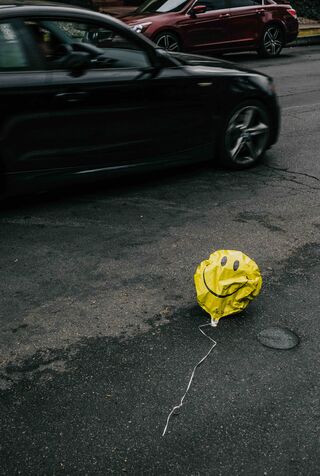Optimism
Kind and Cruel Optimism: Lauren Berlant’s Penetrating Analyses
A reflection on Lauren Berlant's critical legacy.
Posted June 29, 2021 Reviewed by Abigail Fagan
Key points
- Literary and cultural critic Lauren Berlant passed away. She examined our culture’s attachment to dreams that people know may never come to pass.
- This concept is called "cruel optimism," in which the pursuit of something people think they need prevents them from thriving.
- Becoming conscious of compulsions and attachments can help people become more intentional and grateful.
Cultural theorist and University of Chicago George M. Pullman Distinguished Service English professor Lauren Berlant died of cancer yesterday at the age of 64. Who was she? The author of many works of literary criticism, including “Cruel Optimism” (2011) which thoroughly dissected our culture’s attachment to dreams that we know, consciously or unconsciously, may never come to pass. In her self-described “national sentimentality trilogy,” Berlant posited that our sense of identity came less from conscious choices and more from unconscious compulsions and attachments often operating without our awareness or any self-reflection.

Berlant intimated that the American Dream is itself a form of cruel optimism, a paradoxical condition where something you think you desire proves to be a stumble and an obstacle to one’s thriving. In his analysis of Berlant’s work, Hua Hsu wrote, “We are accustomed to longing for things that we know are bad for us, like cigarettes or cake. Perhaps your emotional state is calibrated around a sports team, like the New York Knicks, and despite hopes that next season will be better you vaguely understand that you’ll be let down anyway.”
We experience minor disappointments and setbacks and devastating losses, and these can accumulate to form a sense of letdown. When I think of something big, such as my smart, radiant, kind and otherwise healthy best friend passing at 49 from a rare mutation of cancer, or the bassist of the band I played in dying of COVID, it’s easy to ask “Where were their happy endings?”
Hua Hsu further stated, “We like to imagine that our life follows some kind of trajectory, like the plot of a novel, and that by recognizing its arc we might, in turn, become its author. But often what we feel instead is a sense of precariousness—a gut-level suspicion that hard work, thrift, and following the rules won’t give us control over the story, much less guarantee a happy ending.” How true.
As a personal example, I work hard (haven’t taken a vacation in three years), am the descendant of Dutch, Scot and German peoples (they, like me, are thrifty as hell), and do my best to follow the rules (follow the speed limit, take my car in for servicing every six months, and dutifully affix my annual inspection sticker).

But even so, last week the front axle of my car broke out of the blue. I had whiplash, back strain, a skinned knee and a sore ankle. But here’s where I, like Berlant, choose a different path. Instead of whining about it, I point out (mostly to myself until now) that it beats the alternative. No one got seriously hurt. The breakdown didn’t cause anyone else harm. Further, my eldest son had been driving the same car two days earlier at 80 mph with his mother as a passenger. If the axle had broken then, no one would have walked away from that accident. When I reflect on this event in the bigger picture, and with some bemusement recall directing traffic around my car’s smoking hulk, and soaking in the unsolicited but welcome kindness and counsel of strangers who appeared out of nowhere (this is the northeast corridor, and it was a remarkable experience in this context), I experience feelings of gratitude, appreciation, and yes, optimism.
As Lou Reed wrote, “There’s a bit of magic in everything. And then some loss to even things out.” Yes, there are major tragedies, and small disappointments, that befall us and those close to us. We love and lose. And structurally speaking, the American Dream is more than a little rigged, and not all of our dreams come true. But if we strive to become conscious of our compulsions (workaholism, etc.), and attachment to outdated tropes (“overachievement brings success, which begets money, which surely brings us happiness”)—those notions that might not bear clear-eyed examination—we can become intentional, grateful, and human, beings. Thanks, Lauren Berlant, for sharing your penetrating, magical, and not always cruel, insights and illumination.
References
Hsu, H. (2019, March 18). Affect theory and the new age of anxiety. The New Yorker. https://www.newyorker.com/magazine/2019/03/25/affect-theory-and-the-new…


